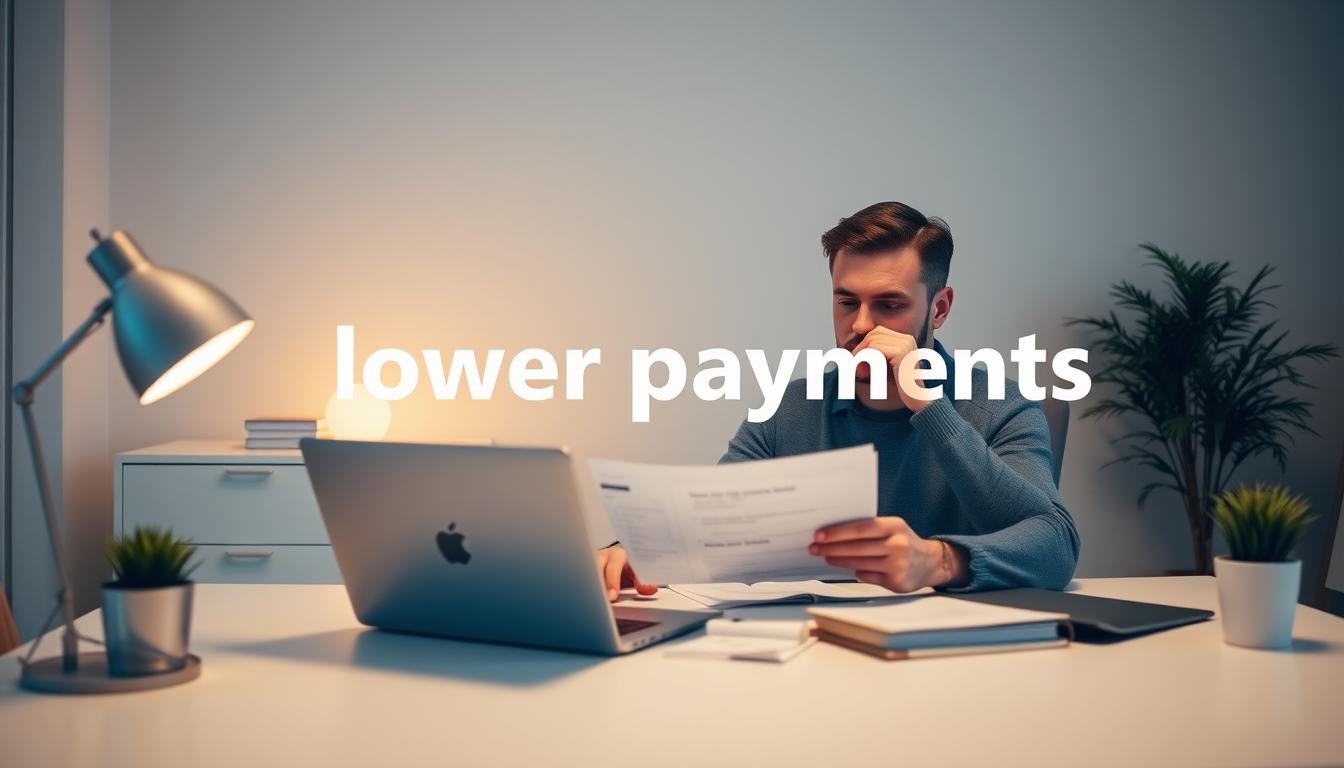Secure Your Dream Home with Top Home Loans
Did you know the right mortgage loan can make you smile? It offers low rates and easy payments. This is a big step towards owning your dream home.
At Zing Credit Union, we have many home buying tips and mortgage options. This includes a 3% Down Payment Mortgage and a Homeownership Set-aside Program. These make buying your dream home easier.
Finding the right home loans can feel like a maze. That’s why we’re here to help. We’ll show you why picking the right mortgage is key in buying a home.
Key Takeaways
- Low rates and payments make owning a home stress-free.
- Zing Credit Union offers a 3% Down Payment Mortgage program.
- The Homeownership Set-aside Program helps with buying costs.
- Choosing the right mortgage is crucial for your dream home.
- There are many mortgage solutions for different needs.
Understanding Home Loans: What We Need to Know
Home loans are a key part of buying a home. It’s important to understand them well. This helps us make smart choices.
Definition of Home Loans
A home loan, or mortgage loan, lets us borrow money to buy or keep a home. The loan is tied to the property. If we can’t pay it back, the lender can take the property.
Knowing the basics of home loans is crucial. It helps us figure out if we qualify and what loan is best for us.
Types of Home Loans Available
There are many home loans to choose from. Each has its own good and bad points. We can look at fixed-rate and adjustable-rate mortgages, for example.
The Consumer Finance website has great info on these loans. Programs like CalHFA also help low to moderate-income families with down payments or closing costs.
Key Terms to Familiarize Ourselves With
To get around the home loan market, we need to know important terms. These include interest rates, loan terms, and how to pay back the loan. Knowing these can help us save money.
For instance, getting the best interest rates can lower our monthly payments. This is over the whole loan period.
The Benefits of Securing a Home Loan
Getting a home loan is a big step towards owning a home. It brings many benefits. Let’s explore what these are.
Building Equity Through Home Ownership
One key advantage is building equity. As we pay off our mortgage, we own more of our home. This can be very valuable.
Zing Credit Union helps first-time buyers with up to $7,500 for down payments and closing costs. This helps them start building equity.
Having equity means financial security. It also opens doors to future financial opportunities. For example, we can use it for refinancing options or other big expenses.
Potential Tax Deductions
Homeownership also means tax benefits. We might deduct mortgage interest and property taxes from our income. This can save us a lot of money.
It’s important to talk to a tax expert to see what we can deduct.
Financial Flexibility and Security
Having a home loan makes our finances more stable. It helps us plan for the future. Getting loan pre-approval helps us know our budget for buying a home.
Homeownership also protects us from inflation and rising housing costs. As prices go up, so does our property’s value. This gives us financial security.
Evaluating Our Home Loan Options
Finding the best home loan means looking at all our options carefully. There are many mortgage products out there. Knowing the details of each can help us choose wisely, matching our financial goals.
Fixed-Rate vs. Adjustable-Rate Mortgages
When picking a home loan, we must decide between fixed-rate and adjustable-rate mortgages. Fixed-rate mortgages keep the same interest rate for the whole loan term. This makes budgeting easier.
Adjustable-rate mortgages have rates that can change with the market. They might start lower, but could go up, raising our monthly payments. We need to think about what’s best for us, based on our finances and future plans.
FHA Loans and Their Benefits
FHA loans are popular because they’re easier to get and need lower down payments. The Federal Housing Administration insures these loans. They help more people buy homes, including first-time buyers.
FHA loans are good for those with lower credit scores and less money for down payments. But, they come with mortgage insurance premiums. These can add to our costs.
VA Loans for Veterans and Active Military
VA loans are for veterans, active military, and their families. The Department of Veterans Affairs backs these loans. They often have lower interest rates and no down payments.
VA loans also have more flexible credit scores and lower closing costs. For those who have served, these loans can make buying a home easier. Knowing who can get these loans and how they work can help us a lot.
By looking at all our options, like fixed-rate and adjustable-rate mortgages, FHA loans, and VA loans, we can find the right one. This careful choice helps us navigate the mortgage world. It ensures we get a loan that helps our financial future.
The Home Loan Application Process
Getting a home loan is a big step towards owning our dream home. It’s important to know the process well. This way, we can make our home buying journey smooth and successful.
Preparing Our Financial Documents
We need to get our financial documents ready before applying for a home loan. This includes:
- Pay stubs and employment verification
- Bank statements and investment accounts
- Tax returns and W-2 forms
- Identification documents, such as a driver’s license or passport
Having these documents ready will make the application process easier. It shows lenders that we’re financially stable.

Understanding Credit Scores
Our credit score is key in getting a good interest rate and loan approval. A high credit score means we’ve managed our finances well. This makes us more attractive to lenders.
To boost our credit score, we should:
- Make timely payments on existing debts
- Keep credit card balances low
- Check our credit report for errors
With a good credit score, we can get better loan terms. This can save us money over time.
Step-by-Step Application Guide
Here’s a simple guide to help us through the home loan application:
- Get pre-approved: Get pre-approved for a mortgage before we start looking for homes. This helps us know our budget.
- Choose a lender: Look for the best rates and terms by comparing different lenders.
- Submit our application: Give the required documents and fill out the loan application.
- Processing and underwriting: The lender will check our application, might order an appraisal, and decide.
- Closing: After approval, we’ll sign the final documents and buy our home.
By following these steps and being prepared, we can have a smooth home loan application process.
Interest Rates: What Affects Them?
Understanding interest rates is key to smart home loan choices. Rates can change our monthly payments and the loan’s total cost.
Economic Factors at Play
Economic conditions shape interest rates. Things like inflation, growth, and central bank policies matter. For example, high inflation might lead to higher rates to slow spending.
Key economic indicators that sway rates include:
- Gross Domestic Product (GDP)
- Inflation rates
- Unemployment rates
These signs show the economy’s health and guide lender decisions.
How Our Credit Score Impacts Rates
Our credit score greatly affects the rate we get. A better score means we’re seen as less risky, leading to better rates. A lower score might mean higher rates or even no loan.
“Maintaining a good credit score is essential for securing the best interest rates on your home loan.”
To boost our credit score, we should:
- Paying bills on time
- Reducing debt
- Checking credit reports for mistakes
Locking In a Rate
When we find a good rate, locking it in is a smart move. A rate lock agreement with our lender secures a set rate for a set time, usually until the loan is finalized.
Benefits of locking in a rate include:
- Protection from rising rates
- Stable monthly payments
- Less worry about rate changes during the loan process
Monthly Payments: Breaking Down the Costs
It’s important to understand our monthly mortgage payments. Our payments have several key parts. Knowing these helps us manage our money better.
Principal and Interest Explained
Our monthly payments mainly cover the principal and interest. The principal is the loan amount we borrowed for our home. Paying it down reduces our loan balance.
The interest is the cost of borrowing that amount. It’s the fee the lender charges for the loan.
At first, most of our payment goes to interest. But, as we pay more, more goes to the principal. This is shown in the loan’s amortization schedule.
Escrow Accounts and Their Importance
Our payments also include escrow amounts. An escrow account is held by our lender. It pays for property taxes and insurance for us.
Our lender collects a bit of these costs each month. They hold it until the bills are due. This helps us budget for these big expenses.
- Property taxes are paid annually or semi-annually.
- Homeowners insurance is paid annually.
- Some lenders include private mortgage insurance (PMI) or other insurance in escrow.
Understanding PMI
Private Mortgage Insurance (PMI) is extra if our down payment is less than 20%. It protects the lender if we can’t pay the loan.
PMI costs depend on the loan amount, loan-to-value ratio, and our credit score. Knowing about PMI is key when choosing a mortgage.
To skip PMI, we can make a bigger down payment. Or, we can look into VA loans for veterans.
Tips for First-Time Home Buyers
Buying your first home is a big step. It needs careful planning and preparation. Knowing the key steps can help a lot.
Saving for a Down Payment
One big challenge is saving for a down payment. Lenders usually ask for 3.5% to 20% of the home’s price. We can save by opening a special savings account or looking into down payment help.
Ways to save include setting up automatic transfers and cutting back on spending. We can also use tax-advantaged savings. Starting early and saving regularly helps us reach our goal.
Getting Pre-Approved for a Mortgage
Getting pre-approved for a mortgage is key. It shows us how much we can afford and makes our offer stronger. To get pre-approved, we need to give financial documents to a lender.
The lender checks our credit and gives a pre-approval letter. This letter says how much we can borrow and the interest rate. It’s valid for a while, letting us look for homes.
Navigating the Real Estate Market
The real estate market can be tough for first-timers. It’s important to know the market, local laws, and work with a good agent.
| Tip | Description | Benefit |
|---|---|---|
| Attend a Homebuyer Education Course | Learn about the home buying process, financial management, and maintenance. | Better prepared for homeownership |
| Get Pre-Qualified | Understand our budget and financial standing. | More confident when making an offer |
| Make a Competitive Offer | Research the market, understand the seller’s needs. | Higher chances of offer acceptance |
By following these tips and staying focused, we can successfully buy a home. It’s a big step towards our dream of homeownership.
Refinancing Our Home Loan: Is It Time?
Interest rates change often, making us think about refinancing our home loan. Refinancing means we get a new mortgage, often with a different rate or terms.

Reasons to Refinance
There are good reasons to refinance. One big one is to get lower interest rates. This can lower our monthly payments and save us money over time.
Another reason is to change from an adjustable-rate mortgage to a fixed-rate mortgage, or the other way around. This depends on our financial situation and the market. Refinancing can also help us use our home’s equity for big expenses or to pay off debt.
The Refinancing Process
Refinancing a home loan is like getting the original mortgage. We’ll need to gather financial documents like income proof, credit reports, and bank statements. These are for lenders to review.
It’s key to compare best interest rates and terms from different lenders. Some, like Zing Credit Union, offer great rates and help with the process.
Assessing Costs vs. Benefits
Before deciding, we must think about the costs and benefits of refinancing. We need to find the break-even point, where savings from the new loan are more than the refinancing costs.
By looking at our financial goals and the current market, we can decide if refinancing is right. It’s also important to pick refinancing options that fit our long-term financial plan. This ensures our decision supports our financial health.
Understanding Closing Costs and Fees
When you get a home loan, knowing about closing costs and fees is key. It helps make the process smooth. It’s important to know the costs beyond the loan amount.
Typical Closing Costs We Should Expect
Closing costs include many fees from the home loan process. These fees are:
- Origination fees from the lender for handling the loan
- Appraisal fees to check the property’s value
- Title insurance and escrow fees for a clear ownership transfer
- Credit report fees
- Underwriting fees
Bankrate says knowing these costs helps avoid surprises. Closing costs usually are 2% to 5% of the loan amount.
Negotiating Fees with Lenders
We can talk about fees with our lender. We might ask them to lower or waive some costs. Some lenders offer no-closing-cost mortgages, but the interest rate might be higher.
To negotiate well, we should:
- Look at offers from different lenders to find the best one
- Know which fees can’t be changed
- Ask about any discounts or special deals
Strategies to Minimize Closing Costs
To cut down on closing costs, try these home buying tips:
- Compare fees from different lenders and service providers
- Choose a lender that doesn’t need an appraisal, if you qualify
- Talk to the seller to see if they can help with costs
- Look into a lender credit for closing costs
By understanding and tackling closing costs early, we can make buying a home easier and less stressful.
The Future of Home Loans: Trends to Watch
The world of mortgage loans is complex, but staying informed is key. New technologies, changes in rules, and digital lenders are shaping the future. These factors are changing how we get home loans.
Advancements in Lending Technology
Technology is making mortgage loans faster and easier. Now, we can compare refinancing options and find the best rates online. This digital shift is making the application process smoother and improving our experience.
Regulatory Changes and Their Impact
Regulatory changes are also impacting mortgage loans. Keeping up with these changes helps us make better choices. It’s important to understand these rules to navigate the market well.
The Rise of Digital Lenders
Digital lenders are growing in the mortgage world. They offer competitive rates and simple services. As we look ahead, digital lenders will likely play a big role. They will give us more refinancing options and better rates.









